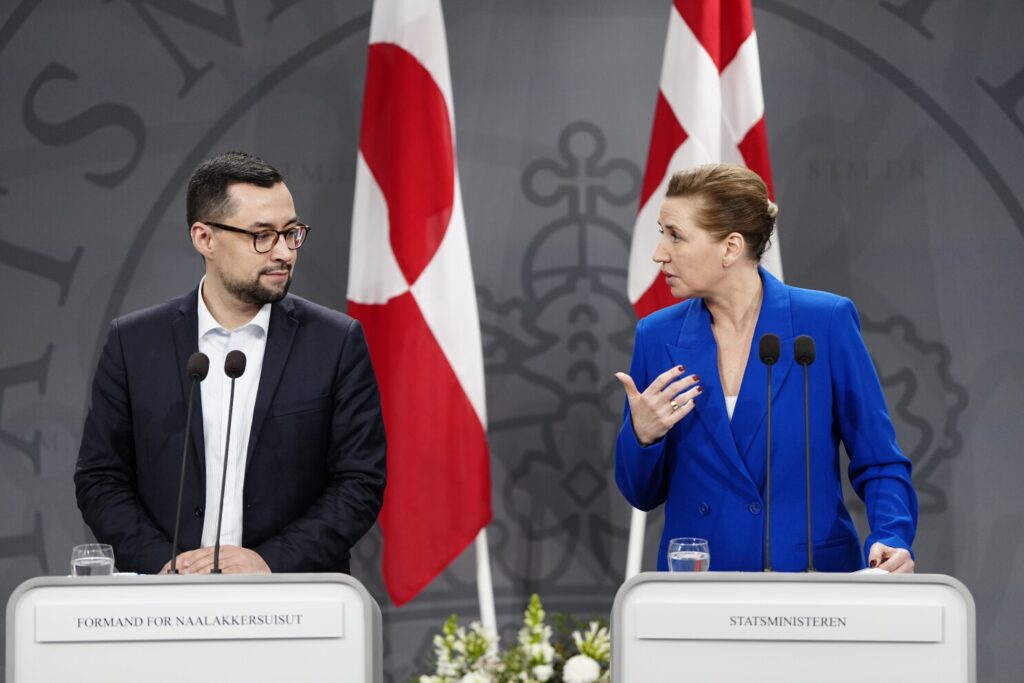
Denmark’s Prime Minister Mette Frederiksen made a firm promise that the United States will not gain control of Greenland during the current height of tensions regarding President Donald Trump’s previous Greenland acquisition ambitions.
During his speech in Nuuk on Wednesday the Greenlandic capital Mette Frederiksen affirmed to the population that Greenland belongs to its native people rather than foreign nations.
During a three-day Greenland visit Frederiksen aimed to deepen Danish relationships with Greenland while providing support as foreign powers increase their geopolitical influence.
The leader of Denmark made her visit to Greenland shortly after U.S. Vice President JD Vance completed his trip that generated criticism from both Danish authorities and Greenlandic government representatives.
According to Frederiksen she stated to reporters that the United States cannot achieve control over Greenland as Denmark remains committed to its territorial sovereignty. She made a firm declaration that Greenland remains under Greenlanders’ control.
The newly elected Prime Minister of Greenland Jens-Frederik Nielsen received Frederiksen with appreciation for Denmark’s continuing support. The political leader stated that Denmark continues to be Greenland’s most important ally but Greenland will eventually become sovereign.

Nielsen emphasized that Greenland should be free to choose independence but Denmark should sustain both diplomatic and economic relations with Greenland.
People see Frederiksen’s visit as support to Greenland through this period because the country endured Danish colonial oppression in its past.
The relationship between Denmark and Greenland grew strained during recent years because Trump expressed interest in purchasing the island in 2019. Greenland faces uncertainty about its future position as the United States enhances its Arctic influence.
Frederiksen put forward the necessity of respectful collaboration at her meeting since Arctic geopolitical tensions continue to grow.
She emphasized that both nations needed to conduct joint talks about foreign and security policies as they deal with increasing strategic importance in the region.





